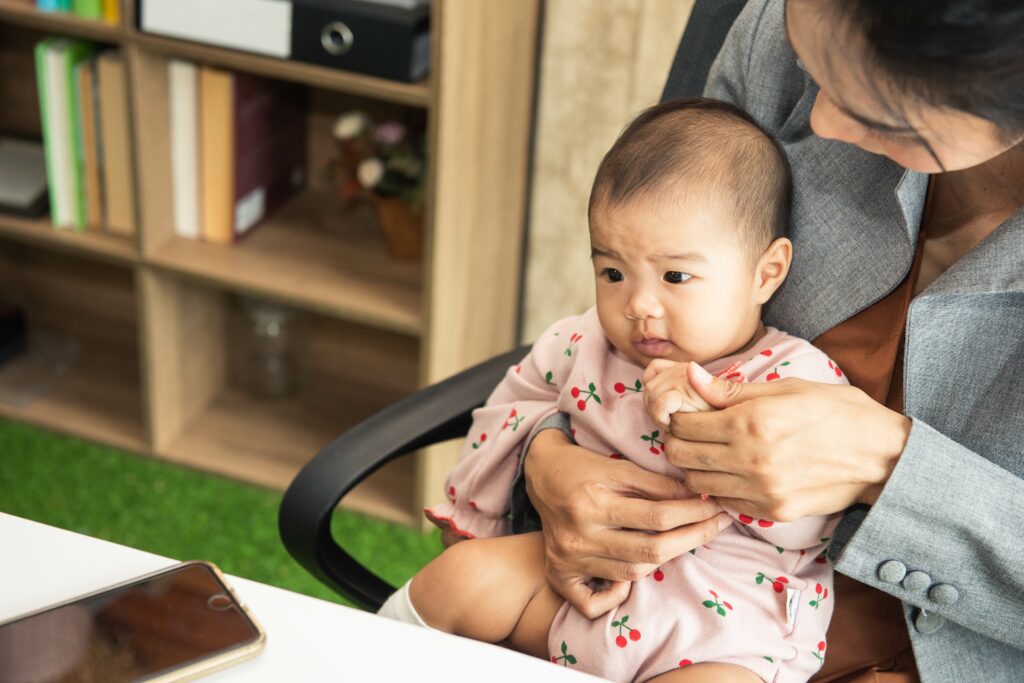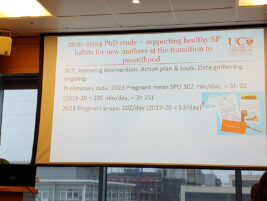GAIMH (German-Speaking Association for Infant Mental Health) an Affiliate of WAIMH (World Association for Infant Mental Health), have recently shared with WAIMH, findings from their scientific state of the art research on digital media and early childhood as it pertains to young children and their families in the GAIMH affiliate context, together with implications for training and examples for putting into practice.
These findings are presented as a GAIMH affiliate position paper.
Position paper: Digital media and early childhood. State of research, effects and recommendations (Paula Bleckmann (Alfter) Valérie Brauchli (Zurich) Marion Hantinger (Salzburg) Mirjam Hilgerloh (Munich) Barbara von Kalckreuth (Freiburg) Annette M. Klein (Berlin) Larissa Schneebeli (Zurich) Lieselotte Simon-Stolz (Homburg) Fabio Sticca (Zurich) Claudia Uhler (Freiburg) Martina Wolf (Munich) Martina Wolf (Vienna) Agnes von Wyl (Zurich).
The position paper “Digital Media and Early Childhood” is aimed at all professionals who deal with mothers and fathers and children aged from birth to the age of three in childcare settings, counselling or therapy.
It provides an overview of device ownership and screentime of young children in German-speaking countries and their increase over time, with a marked increase during the pandemic. The state of scientific research on screen media use of 0-3 year-olds themselves („foreground exposition“) as well as screen media use within the family setting („background exposition“ and „technoference“) on a variety of developmental outcomes is summarized, and research gaps and shortcomings of existing approaches in research are pointed out. Each section presenting research on a specific outcome contains an added section named „GAIMH perspective“, which describes a consensus within the GAIMH study group on what can be deduced from knowledge on infant mental health and its prerequisites even in such areas where empirical evidence is still scarce.
Children are in direct or indirect contact with screen media, which limits their direct multisensory exploration of the world. But while the developmental psychological demands that children have in early childhood cannot be genuinely satisfied via screen media, this is different for the caretakers, whose attempts at satisfying their own psychological demands via use of digital screen media can in principle be successful – at least in part. But while doing so, their attention is distracted from the child, the interaction is interrupted.
Recommendations for practice are included. This begins with professionals´ reflection on their own use of screen media, as prerequisite for reaching caretakers empathetically. In helping caretakers to balance their own and their child´s needs in their daily routines, fostering easy-to-do and engaging non-screen alternatives for children – and parents – should play an important role.
Various recommendations on the level of policy, legislation and research are given, for example the mandatory inclusion of the topic of “Digital Media and Early Childhood” in curricula in the (further) training of all professionals involved in childcare, counselling and theraypy for children aged 0-3 and their families, or the funding of both the development, implementation as well as evaluation studies for interventions to reduce negative effects of screen-media use on child health and development. (Position Paper – Digital Media and Early Childhood – GAIMH)
For the German version: this can be found on the GAIMH website: www.gaimh.org
For the English version: [click here]
Early Childhood and Digital Device Use is a growing arena of interest, practice, and research within the field of infant mental health. Please feel free to write to barbara.kalckreuth@babyambulanz.de in case of interest in contributing to a future special committee on the topic.
WAIMH welcomes your comments and feedback on this position paper. Any comments and feedback can be sent to the Editor-in-Chief of WAIMH Perspectives; Maree Foley at: perspectives@waimh.org








